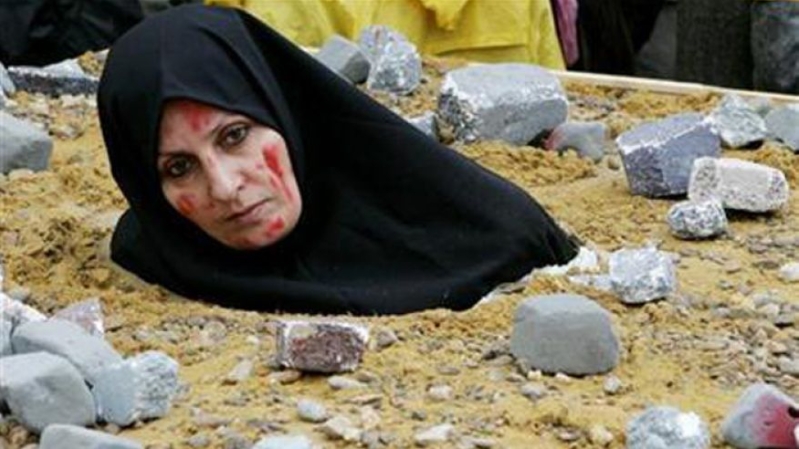
While International Human Rights Day was observed on Thursday, Iran announced another woman was sentenced to death by stoning. Identified only by the initials "A.Kh," the woman was convicted of allegedly being involved in her husband's murder, reported Fox News.
The United Nation's Human Rights Day occurs annually on Dec. 10 to commemorate the day in 1948 on which the U.N. General Assembly adopted the Universal Declaration of Human Rights.
The stoning penalty, as reported on the Persian-language Iranian website LAHIG, calls for wrongdoers to be buried up to their shoulders and pelted with rocks. An Iranian criminal court in Rasht, the capital city of the northern province of Gilan, executed the sentence, cited the Jerusalem Post.
The woman was also sentenced to lashings and 25 years in jail, according to the International Business Times. Two men also were convicted of the murder. While one of them was sentenced to death, the other will have to serve five years in prison.
"Local state media reported the sentencing. However the Iranian regime's judiciary has not officially published any information on the verdicts," the National Council of Resistance of Iran said.
"The rate of executions in Iran has not decreased in the last few years; it has increased," Maryam Nayeb Yazdi, a prominent Canadian-Iranian human rights activist based in Toronto, told Fox News.
"Although stoning has become more rare in Iran, such sentences are still being issued by Iranian judges. The probability of a stoning sentence to be carried out is slim due to the international sensitivity of the issue; there is a great chance her sentence may be 'converted' to death by hanging."
Information from the International Committees against Execution and Stoning indicates Iran is believed to have imposed death by stoning on at least 150 people since the Islamic Revolution in 1980.
Julie Lenarz, the executive director of the Human Security Center in the United Kingdom, said: "It is astonishing that the West cultivates an ever-closer alliance with a theocratic regime widely known for its abysmal human rights record and aggressive behavior in the region. They hang men for the 'crime' of writing poems; or engaging in peaceful protest; or loving someone of the same sex."
"Women are stoned for being raped and Iranian law even allows for juvenile executions. Iran is averaging three hangings per day at the moment and remains a pariah state with no regard for human life. In a despicable form of moral myopia, the gold rush for business, as the international sanctions regime begins to unravel, has made Western governments blind to the suffering of ordinary Iranians at the hands of the Ayatollahs," Lenarz said.







